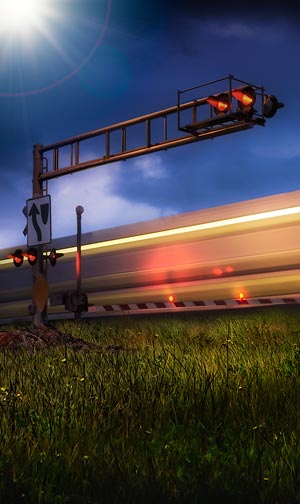Pottroff & Karlin, LLC Featured in March 2011 Edition of FELA Reporter
Magistrate Judge in Arkansas Says Railroad Must Provide Computer Pre-Loaded with Locomotive Event Recorder Video and Data as Well as Software — Defense Request for Protective Order Denied
The plaintiff was injured in a vehicle/train collision at a crossing in McNeil, Arkansas on May 23, 2008. The train involved in the accident was equipped with a video and data recorder that recorded the accident and the events immediately preceding the accident. As a part of discovery, plaintiff [through Pottroff & Karlin, LLC] made the following requests for production: (1) “please produce a complete copy of all the video and other data downloaded after the accident from any video recording device on any locomotive in the train that was involved in this accident along with any software necessary to analyze the video and data”; (2) “please produce a complete copy of all the data downloaded after the accident from any locomotive data event recorder on any locomotive in the train that was involved in this accident, along with any software necessary to analyze such data.” With respect to request number one, the railroad agreed to provide a copy of the video, provided plaintiff signed an agreement which prohibited release of the video to third parties. The defense then stated it did not have authority under the licensing agreement to provide a copy of the software to the plaintiffs. The defense did provide the contact information of the copyright holder. Instead, the railroad suggested that plaintiff seek his own software license from the copyright holder. With respect to the second request for production, the defense objected to production of the requested data as being “overbroad, unduly burdensome, not reasonably limited in time and therefore irrelevant and not reasonably calculated to lead to the discovery of admissible evidence.” Subject to that objection, however, the railroad did provide certain printouts of the data at issue. Even so, the railroad again objected to providing the software needed to analyze the data for the same reason as with respect to the first request. Plaintiff moved to compel production, and the matter was referred to a magistrate judge.
On February 18 the magistrate judge granted the motion to compel. He found it clear that there was a compelling need for both the video recording and data recording in that there was no other source for such information. The magistrate judge then ruled that the real issue was plaintiff’s ability to access the video and data once it was provided because “without the software necessary to display and analyze the data event recorder from the locomotive, the actual video and data stored … is not usable.” The railroad was ordered to obtain permission from the software copyright holder to produce the software and data to plaintiff, then provide plaintiff with a computer pre-loaded with the software and data. The computer will be returned to the defense at the conclusion of the litigation. The magistrate judge rejected the defense request for a protective order limiting dissemination of the video as he pointed to the strong presumption in favor of public access to judicial records.


